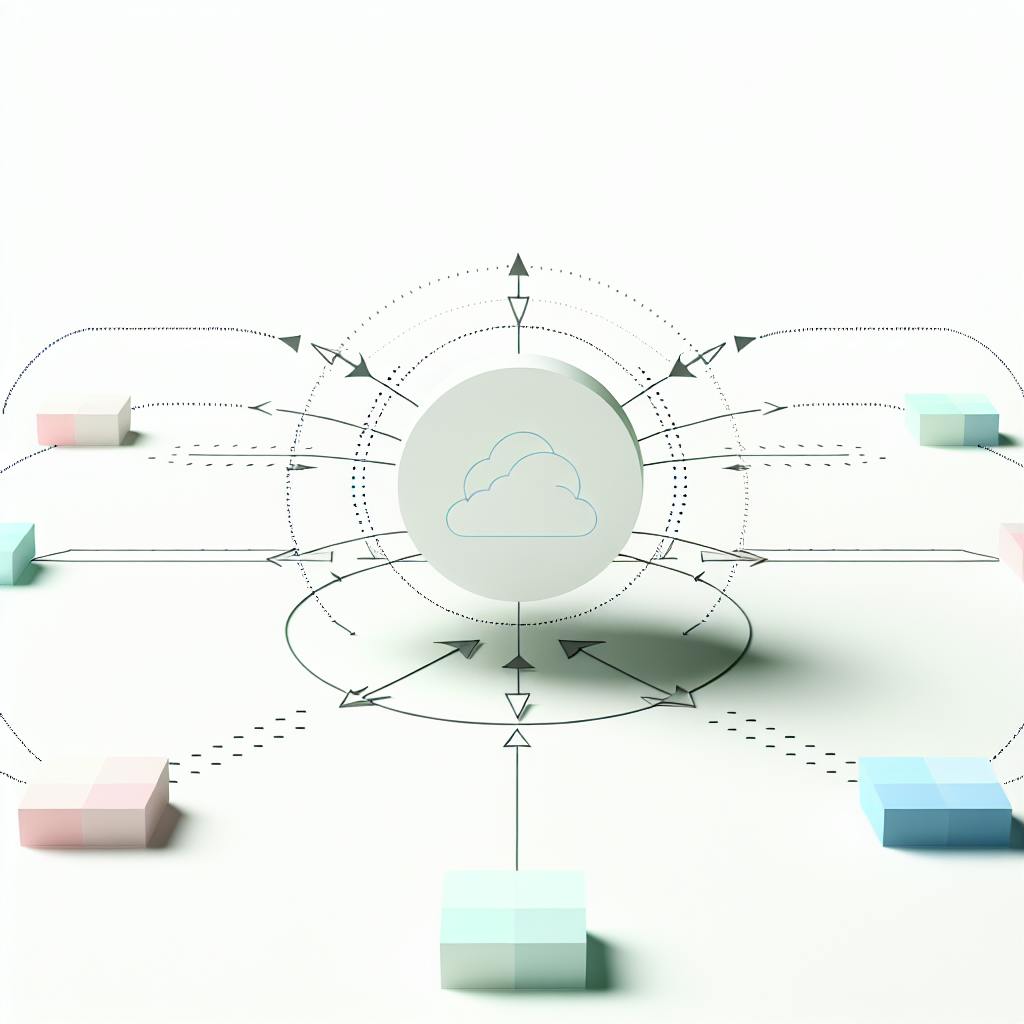AWS certifications can significantly boost your tech career:
- Salary increase: 25-30% higher pay on average
- Job opportunities: High demand across industries
- Career growth: Faster promotions and new roles
- Skill validation: Proves expertise to employers
Key certification types:
- Foundational (e.g., Cloud Practitioner)
- Associate (e.g., Solutions Architect, Developer)
- Professional (e.g., Solutions Architect, DevOps Engineer)
- Specialty (e.g., Security, Machine Learning)
| Certification Level | Avg. Salary (USD) | Typical Pay Increase |
|---|---|---|
| Foundational | 80,000 - 100,000 | 10-15% |
| Associate | 110,000 - 150,000 | 20-30% |
| Professional | 160,000 - 220,000 | 30-40% |
Employers highly value AWS certifications:
- 76% consider them important in hiring
- 60% prefer certified candidates
While certification requires time and money investment, the career benefits often outweigh the costs. As cloud adoption grows, demand for AWS-certified professionals is expected to remain strong.
Related video from YouTube
2. How We Did This Study
2.1 Our Research Approach
We used different methods to study how AWS certifications affect salaries and jobs:
- Read papers, reports, and online discussions about AWS certifications
- Looked at data from trusted sources
- Talked to people who work with AWS and those who hire them
2.2 Where We Got Our Data
We used these sources for our study:
| Source | What We Found |
|---|---|
| AWS Website | Info about AWS exams and their benefits |
| Job Websites | Job listings to see what companies want |
| Salary Websites | Pay ranges for AWS jobs |
| Online Forums | What people say about AWS certifications |
| Interviews | Talks with AWS experts and hiring managers |
2.3 Study Limits
Our study has some limits:
- It's based on the data we could find
- It might not show what's happening everywhere
- It looks at jobs now, not in the future
Even with these limits, our study gives a good look at how AWS certifications help in today's job market.
3. Types of AWS Certifications

3.1 Different AWS Certifications
AWS offers many certifications for different jobs and skill levels. These certifications fall into three main groups: Foundational, Associate, and Professional. There are also Specialty certifications for specific areas like security and machine learning.
3.2 Certification Levels
| Level | Description | Examples |
|---|---|---|
| Foundational | For beginners in AWS and cloud computing | AWS Certified Cloud Practitioner – Essentials |
| Associate | For those with some AWS experience | AWS Certified Solutions Architect – Associate, AWS Certified Developer – Associate |
| Professional | For experts in complex AWS systems | AWS Certified Solutions Architect – Professional, AWS Certified DevOps Engineer – Professional |
| Specialty | For specific areas like security or machine learning | Various specialty certifications |
3.3 Exam Requirements and Format
AWS certification exams test your knowledge of AWS services. They use multiple-choice questions and vary in length. AWS provides study materials to help you prepare.
| Certification | Exam Length | Question Type |
|---|---|---|
| Cloud Practitioner – Essentials | 130 minutes | Multiple Choice |
| Solutions Architect – Associate | 130 minutes | Multiple Choice |
| Developer – Associate | 130 minutes | Multiple Choice |
| Solutions Architect – Professional | 170 minutes | Multiple Choice |
| DevOps Engineer – Professional | 170 minutes | Multiple Choice |
Note: Always check the AWS website for the latest exam details, as they may change.
4. How AWS Certifications Affect Pay
4.1 Typical Salary Increases
Getting an AWS certification can boost your pay. Studies show that AWS certified professionals often earn 25-30% more than those without certifications. This increase can change based on where you work, your industry, and how much experience you have.
4.2 Pay Differences by Certification
Different AWS certifications can lead to different pay increases:
| Certification | Average Salary (USD) | Pay Increase |
|---|---|---|
| Cloud Practitioner – Essentials | 80,000 - 100,000 | 10-15% |
| Solutions Architect – Associate | 110,000 - 140,000 | 20-25% |
| Developer – Associate | 120,000 - 150,000 | 25-30% |
| Solutions Architect – Professional | 160,000 - 200,000 | 30-35% |
| DevOps Engineer – Professional | 180,000 - 220,000 | 35-40% |
4.3 Salary Comparison by Industry
Here's how AWS certifications can affect salaries in different industries:
| Industry | Regular Salary (USD) | AWS Certified Salary (USD) | Pay Increase |
|---|---|---|---|
| Finance | 80,000 - 120,000 | 110,000 - 150,000 | 25-30% |
| Healthcare | 70,000 - 110,000 | 100,000 - 140,000 | 20-25% |
| Technology | 100,000 - 160,000 | 140,000 - 200,000 | 30-35% |
| Manufacturing | 60,000 - 100,000 | 90,000 - 140,000 | 25-30% |
Note: These numbers are rough estimates based on U.S. averages. Real salaries may be different depending on where you live, your experience, and other factors.
5. Job Market Effects
5.1 Need for Certified Professionals
More companies are using cloud services, which means more jobs for people who know AWS. AWS certifications show that you can work with AWS systems. This makes certified professionals very wanted in the job market.
Studies say the need for cloud experts will grow by 30% each year until 2025. This means more job chances for people with AWS certifications.
5.2 Jobs That Often Need AWS Certifications
Many jobs ask for AWS certifications:
| Job Title | Role | Useful AWS Certifications |
|---|---|---|
| Cloud Architect | Designs cloud systems | Solutions Architect – Associate, Solutions Architect – Professional |
| Cloud Engineer | Builds and runs cloud systems | Developer – Associate, DevOps Engineer – Professional |
| Cloud Security Engineer | Keeps cloud systems safe | Security – Specialty |
5.3 Differences by Location
Some places need more AWS experts than others:
| Location | Demand for AWS Professionals |
|---|---|
| San Francisco, New York, London | High |
| India, China | Growing |
5.4 Industries Seeking AWS Professionals
Many industries need AWS experts:
| Industry | Why They Need AWS Experts | Common Job Roles |
|---|---|---|
| Finance | Uses many cloud systems | Cloud Architect, Cloud Engineer, Cloud Security Engineer |
| Healthcare | Moving more to the cloud | Cloud Architect, Cloud Engineer, Cloud Security Engineer |
| Technology | Relies heavily on cloud systems | Cloud Architect, Cloud Engineer, Cloud Security Engineer |
| Manufacturing | Starting to use more cloud systems | Cloud Architect, Cloud Engineer, Cloud Security Engineer |
Note: This table shows some examples, but there are more industries and jobs that need AWS professionals.
6. Career Growth Chances
6.1 Getting Promoted
AWS certifications can help you get promoted. Many companies want cloud experts, so having a certification can make you stand out. Studies show that people with AWS certifications often get higher-level jobs faster than those without them.
Having an AWS certification shows you know your stuff and are serious about your work. This can make your boss more likely to give you a better job. Some companies even require AWS certifications for certain jobs, so having one can give you an edge.
6.2 New Job Options
AWS certifications can open up new job opportunities. As more companies use cloud services, there are more jobs for people who know AWS. With a certification, you can work in different industries and roles.
| Industry | Possible Jobs |
|---|---|
| Finance | Cloud Architect, Cloud Engineer |
| Healthcare | Cloud Security Specialist, Data Analyst |
| Technology | DevOps Engineer, Solutions Architect |
| Manufacturing | Cloud Infrastructure Manager, IoT Specialist |
AWS certifications can also help you change careers. For example, a regular programmer could become a cloud developer, or an IT support person could become a cloud administrator.
6.3 Long-Term Career Effects
Over time, AWS certifications can really boost your career. As more companies use cloud technology, people with AWS skills will be in high demand. Getting certified now can set you up for future success.
AWS certifications can also lead to:
- Better pay: Many studies show that AWS-certified professionals earn more than those without certifications.
- More job satisfaction: People with certifications often feel more confident and happy in their work.
- Job security: With more companies needing cloud experts, having AWS skills can help you keep your job or find a new one easily.
| Benefit | Description |
|---|---|
| Higher pay | AWS-certified professionals often earn more than non-certified peers |
| Job satisfaction | Certified professionals report feeling more confident and accomplished |
| Career growth | Certifications provide a base for learning new skills and staying current |
| Job security | High demand for cloud experts can lead to more stable employment |
sbb-itb-6210c22
7. Is It Worth the Investment?
7.1 Certification Costs
Getting an AWS certification costs money. The exam fees range from $150 to $300, depending on the type of certification. This doesn't include the cost of study materials or training courses.
| Certification | Exam Fee |
|---|---|
| AWS Certified Cloud Practitioner | $170 |
| AWS Certified Developer | $200 |
| AWS Certified Solutions Architect | $200 |
| AWS Certified DevOps Engineer | $200 |
While these costs may seem high, the benefits can outweigh them in terms of job opportunities and higher pay.
7.2 Time Needed
Preparing for an AWS certification takes time. The amount of time depends on your experience and the type of certification. On average, you should plan to study for about 120 hours.
| Certification | Study Time |
|---|---|
| AWS Certified Cloud Practitioner | 80-100 hours |
| AWS Certified Developer | 100-120 hours |
| AWS Certified Solutions Architect | 120-150 hours |
| AWS Certified DevOps Engineer | 150-200 hours |
It's important to make a study plan and stick to it to be ready for the exam.
7.3 Cost vs. Benefit Analysis
While getting an AWS certification costs time and money, it can pay off. Studies show that AWS-certified professionals can earn up to 25% more than those without certifications. They also have more job options and better job security.
| Benefit | Description |
|---|---|
| Higher Pay | Up to 25% more than non-certified peers |
| Better Job Options | More chances for promotions and new roles |
| Job Security | More stable work due to high demand for cloud experts |
To make the most of your AWS certification:
- Pick the right certification for your career goals
- Make and follow a study plan
- Use good study materials and training courses
- Practice with online labs to get hands-on experience
- Keep learning about new cloud technologies
8. What Employers Think
8.1 How Employers View Certifications
Many employers think AWS certifications are important when hiring for cloud jobs. A survey by Indeed found:
| Employer View | Percentage |
|---|---|
| Think certifications are important | 76% |
| See certifications as proof of skills | 72% |
| Like candidates with certifications | 64% |
Employers believe that people with certifications can do their jobs better and save the company money.
8.2 Hiring Certified vs. Non-Certified
Employers often choose people with AWS certifications over those without. A Glassdoor survey showed:
| Hiring Choice | Percentage |
|---|---|
| Pick certified candidates | 60% |
| Pick based on experience | 21% |
| No preference | 19% |
Employers like certified professionals because they know the latest cloud tech.
8.3 Effect on Company Performance
Having certified staff can help a company do better. An IDC study found that companies with many certified IT staff often see:
| Company Improvement | Amount |
|---|---|
| Work done faster | 25% more |
| Less downtime | 30% less |
| Happier customers | 20% more |
These numbers show that AWS certifications can help both workers and companies.
9. Difficulties and Things to Think About
9.1 Keeping Skills Current
AWS certifications need ongoing work:
- Certifications last 3 years, then need renewal
- Cloud tech changes fast, so you must keep learning
- Staying up-to-date helps you stay competitive in your job
To keep your skills fresh:
- Take new courses regularly
- Read AWS updates and news
- Practice with new AWS tools
9.2 Balancing Study and Work
Getting AWS certified takes time and effort. Here's how to manage:
| Strategy | Description |
|---|---|
| Make a study plan | Set aside regular time for learning |
| Set clear goals | Break big tasks into smaller steps |
| Use online help | Join study groups and forums |
| Ask your employer | See if they offer training or study time |
9.3 Will There Be Too Many Certified People?
Some worry about too many people getting AWS certified. But the job market still looks good:
| Fact | Details |
|---|---|
| Cloud market growth | Expected to grow 30% each year until 2025 |
| Skill demand | More cloud jobs than skilled workers expected by 2025 |
| Job outlook | Still good chances for certified professionals |
Even with more certified people, companies still need cloud skills. This means good job chances for those with AWS certifications.
10. What's Next for AWS Certifications
10.1 New Tech and Certifications
AWS will likely add new certifications as technology changes. These might cover:
| New Tech Areas | Examples |
|---|---|
| AI and Machine Learning | Deep learning, natural language processing |
| Internet of Things (IoT) | Smart devices, connected systems |
| Quantum Computing | Quantum algorithms, cryptography |
| Extended Reality | Augmented and virtual reality applications |
| Cybersecurity | Advanced threat detection, cloud security |
These new certifications will help people keep up with new tech in the cloud industry.
10.2 Future Demand Changes
More companies are moving to the cloud, so more AWS experts will be needed. A report by Gartner says the public cloud market will grow 30% by 2025. This means more jobs for people with AWS skills.
10.3 How Certification Programs Might Change
AWS might change its certification programs to keep up with new trends. Here are some possible changes:
| Change | What It Means |
|---|---|
| More hands-on tests | Exams that test real-world skills, not just theory |
| Focus on security | More questions about keeping data safe in the cloud |
| New special certifications | Certifications for specific jobs or industries |
| Testing soft skills | Checking how well you can work with others |
| Flexible learning | More ways to study, like online courses or self-paced programs |
These changes will help make sure AWS certifications stay useful for both workers and companies.
11. Wrap-Up
11.1 Main Points
This article looked at how AWS certifications affect pay and jobs. Here's what we found:
| Key Point | Details |
|---|---|
| Pay increase | AWS certifications can boost salary by 10% to 30% |
| Job demand | More companies want people with AWS skills |
| Career growth | Certifications can lead to new job chances |
| Employer views | Companies like hiring people with AWS certifications |
11.2 Tips for Getting Certified
If you want to get an AWS certification, here's what to do:
| Tip | Description |
|---|---|
| Pick the right one | Choose a certification that fits your job goals |
| Study hard | Take time to learn and practice |
| Keep learning | AWS changes often, so stay up-to-date |
| Show it off | Put your certification on your resume and LinkedIn |
| Keep growing | Learn new skills even after you're certified |
FAQs
What is the salary of AWS certificate holder?
AWS certificate holders' salaries differ by country. Here are some average yearly salaries:
| Country | Average Salary for AWS Certified Professionals |
|---|---|
| USA | $125,000 |
| UK | £48,000 |
| India | ₹9,00,000 |
| UAE | AED 240,000 |
What is the market value of AWS certification?
AWS certifications can boost your pay. Here's what some certifications can earn you:
| Certification | Average Salary |
|---|---|
| AWS Certified Advanced Networking – Specialty | $137,698 |
| AWS Certified Machine Learning – Specialty | $136,595 |
| AWS Certified Solutions Architect – Professional | $132,852 |
| AWS Certified DevOps Engineer – Professional | $124,695 |
What is the salary after AWS certification?
An AWS Solutions Architect makes about $113,261 per year on average. New workers with AWS certification can expect around $88,000, while those with more experience can make up to $173,000 yearly.


